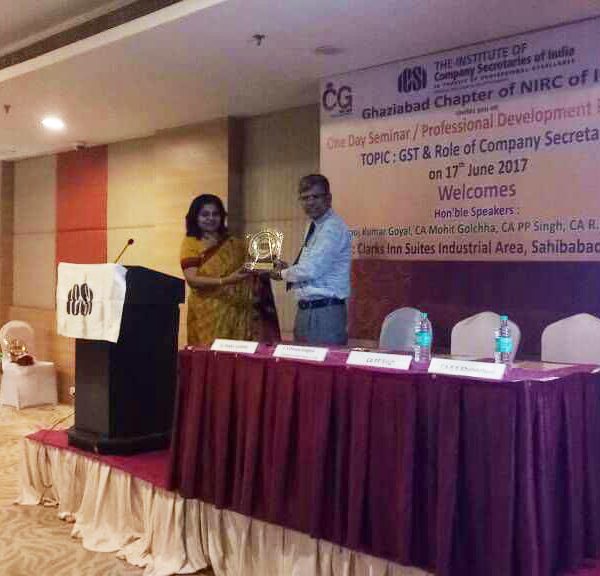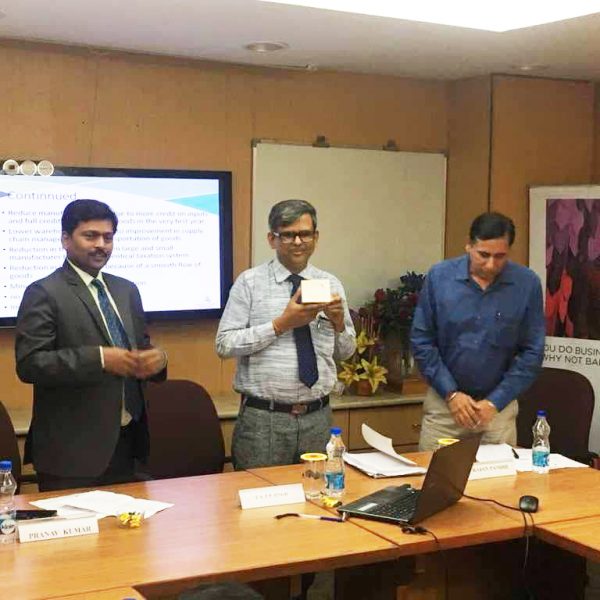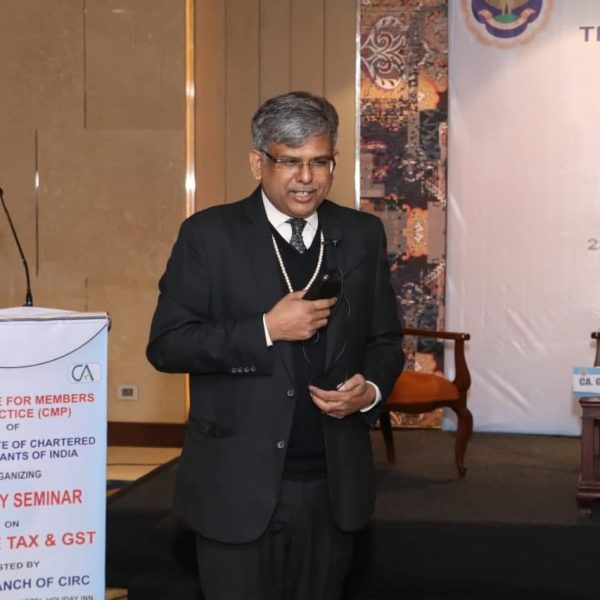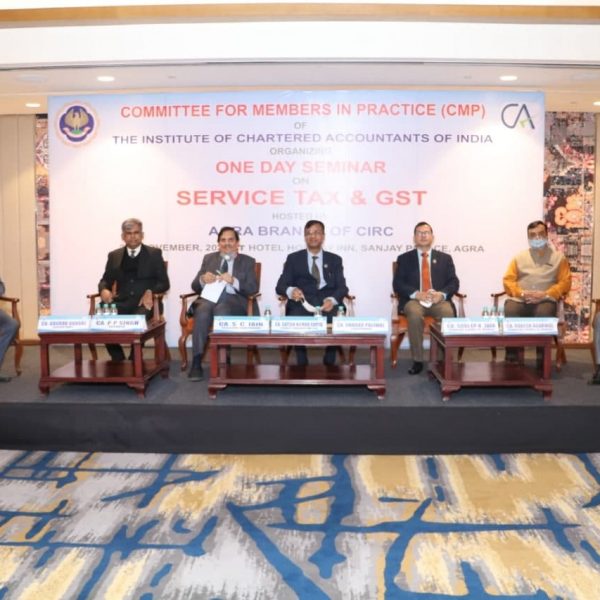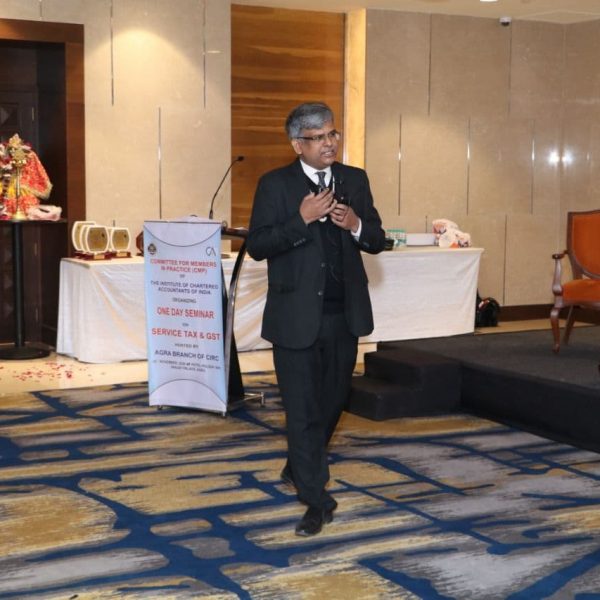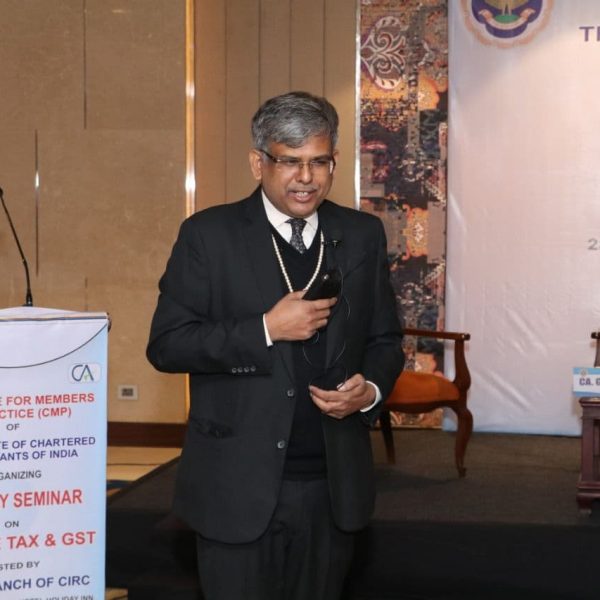Important Investment along with Tax treatment
Introduction :In this article effort has been made to explain some of the important features of the popular investments scheme along with their tax treatment
Sukanya Samriddhi Yojana (SSY) (Notified vide G.S.R. 914(E) dated 12/12/2019 and further amended vide G.S.R. 288(E) dated 05/05/2020)
scope : under this scheme account can be opened for girl child and the fund invested could be utilised for the education and at the time of marriage, Eligibility Condition and important features are explained hereunder
Eligibility:
- The account can be opened by the natural or legal guardian for a girl child of age below 10 years.
- A depositor can open and operate only one account in the name of a girl child under the scheme rules.
- Natural or legal guardian of a girl child are allowed to open the account for two girl children only.
Features:
- Account for maximum 2 girl children
- Maximum age limit of girl child for entry into the scheme – 10 Years
- Maximum number of account per child – 1 with bank or post office
- Minimum investment per year – Rs 250 or as specified by bank
- Maximum investment per year – Rs 1.50 lakh
- Maximum period for investment – Deposits may be made in the account till the completion of a period of 15 years from the date of opening of the account.
- Rate of Interest before 1st April 2020 8.4% per annum on or after the 1st day of April, 2020 @ 7.6%. per annum
- Maximum age limit for holding the investment – 21 years or year of marriage after 18 year whichever is earlier.
- Purpose of withdrawal – For education
- Maximum withdrawal – upto 50% of the amount in the account at the end of the financial year preceding the year of application for withdrawal.
- Application for withdrawal in Form-3
- Closure on maturity – At the time of marriage Provided that no such closure shall be allowed before 1 month from the date of the intended marriage or after 3 months from the date of marriage.
- Application in Form-4 by the account holder for closure on maturity however closure before maturity on furnishing of a declaration duly signed on non-judicial stamp paper attested by the notary supported with proof of age confirming that the applicant will not be less than eighteen years of age on the date of marriage
Tax Benefits
- Tax deduction benefits for amount invested or upto maximum of Rs 1.5 Lakh u/s 80C .
- The interest that accrues against this account which gets compounded annually is also exempt from tax
- The proceeds received upon maturity/withdrawal are also exempt from income tax
Post office Savings Account
Tax Benefits
- Interest earned is Tax-Free up to Rs 10,000/- per year from the F.Y. 2012-13.
- An individual who attained the age of 60 years i.e. senior citizens can get deduction up to Rs 50,000/- u/s 80TTB.
Post Office Recurring Deposit(RD)
- Individual who wish to open Post office RD need to ensure that their deposits are active for a minimum period of 5years.
- Individual who wish to continue with their RD even after this period can do so, taking the maximum tenure to 10 years.
- Post office RD currently earning an interest of 5.8% p.a.
- Minimum Deposit : Rs 100 Per month or any amount multiple of Rs 10.
- Maximum Deposit : No upper limit
- In order to Incentivize people into depositing money in advance, a post office RD provides rebate on advance deposits
| No. of Advance Deposit Installments | Quantum of Rebate |
| 6 | Rs 10 for every Rs 100 |
| 12 | Rs 40 for every Rs 100 |
Tax treatment
- Interest Received on Post Office RD is taxable.
- However, an individual who attained the age of 60 years i.e. senior citizens can get deduction up to Rs 50,000/- u/s 80TTB
Post Office time deposit Scheme.
- An Individual above the age of 10 can open a time deposit account at any post office. Further, guardians can open an account on behalf of a minor.
- One of the primary benefits of post office time deposits is that individual can create multiple accounts without any restriction.
- Depositor get the option to open a time deposit account for 1,2,3 and 5 years. However, account tenure can be extended by a formal application to the post office.
- Interest applicable on a National Saving Time Deposit account.
| Tenure | Rate(2020-21) |
| 1 year | 5.5% |
| 2 year | 5.5% |
| 3 year | 5.5% |
| 5 year | 6.7% |
- The interest, along with the principal, will be paid either in cash or cheque. However, payment higher than Rs 20,000/- will only be made with a cheque.
- Those who do not withdraw the sum after the maturity of a time deposit account will not receive any additional interest.
- The time deposit will get renewed for the same period it was originally created.
- The minimum amount required to open National Saving Time Deposit is Rs 1,000 /- there is no maximum limit.
- A National Saving Time Deposit does not allow premature withdrawal within the first 6 month.
Tax treatment
- Income tax benefits are available only for a 5 year post office time deposit account u/s 80C up to Rs 1.5 lakh.
- However, an individual who attained the age of 60 years i.e. senior citizens can get deduction up to Rs 50,000/- u/s 80TTB
Post office monthly Saving Scheme.
- The lock-in period for Post Office MIS is 5 years. You can withdraw the invested amount when the scheme matures or invest it.
- The initial investment of Rs 1,500/-. As per your affordability, you can invest in the multiples of this amount.
- Only the resident Indian can open POMIS Account. NRI cannot enjoy the benefits of the scheme.
- Facility of opening more than 1 account is available but the total amount deposit cannot exceed Rs 4.5 lakhs in all of them together.
- The investor can move the funds to an RD .
- You can start an account on behalf of a minor who is of age 10 and above. They can avail the fund when they become 18.A minor, after attaining majority, has to apply for conversion of the account in his name.
- You can reinvest the corpus post maturity in the same scheme for another 5 years to get double benefits.
Tax Treatment
- An individual who attained the age of 60 years i.e. senior citizens can get deduction up to Rs 50,000/- u/s 80TTB
Senior Citizens Saving Scheme
- The Scheme is available to any resident individual aged 60 years and above.
- The interest rate available on the SCSS account is Rs 7.4% p.a. for F.Y. 2020-21.
- Also the individual who attained the age of 55 years but are less than 60 years old are also eligible to apply for the SCSS provided they have retired under applicable superannuation or VRS rules. In such cases, account should be open within 1 month of the receipt of retirement benefits.
- The scheme is also available for the retired defense personnel irrespective of above mentioned age limit but subject to fulfillment of other T&C.
- NRIs, PIOs (person of Indian origin)and HUF are not entitled to open senior citizens savings scheme account.
- The account comes with an initial maturity term of 5 years however this can be further extended to another 3 years.
- One can invest any amount in multiples of Rs 1,000/- up to the maximum cap of Rs 15 lakhs.
- The Scheme may be availed through Indian Post Offices or designated bank branches located across the country.
- Tax treatment
- Tax deduction benefits u/s 80C up to Rs 1.5 lakh per annum.
- Interest on SCSS is fully taxable.
PPF Account (Notified vide G.S.R. 915(E) dated 12/12/2019 and further amended vide G.S.R. 290(E) dated 05/05/2020)
- Individuals are eligible to open a PPF account with Bank or post office by making application in Form-1..
- Limits of number of accounts –An individual can open only one account under his/her name. However, another account can be opened by an individual on behalf of a minor.
- Joint account shall not be opened under this Scheme.
- NRIs and HUFs are not allowed to open an PPF account.
- The minimum duration of PPF account is 15 years. However, account holders can extend the duration of the account by a block of 5 years.
- Limits of Investment – Minimum deposit ₹ 500/- & Maximum deposit ₹ 1,50,000/- in a Financial year inclusive of the deposits made in his own account and in the account opened on behalf of the minor.
- PPF Investment can be paid in lumpsum or in installments.
- Deposits must be made at least once a year for 15 years.
- Discontinuation of account on failure of minimum yearly deposit amount of Rs 500, however on payment of minimum yearly amount and Rs 50 per year the account revive and regularized.
- Current interest rate on PPF account is 7.1%
- Interest shall be credited to the account at the end of each year.
Loans – (1)At any time after the expiry of 1 year from the end of the year in which the initial subscription was made but before expiry of 5 years from the end of the year in which the initial subscription was made, the account holder may, apply in Form-2, to the accounts office for obtaining a loan consisting of a sum of whole rupees not exceeding 25% of the amount that stood to his credit at the end of the 2 year immediately preceding the year in which the loan is applied for.
(2) In case of an account opened on behalf of a minor or a person of unsound mind, the guardian may apply for the loan for the benefit of the minor or the person of unsound mind by submitting the following certificate to the accounts office, namely:-
“Certified that the amount sought to be withdrawn is required for the use and welfare of Shri/Smt./Master/ Kumari……………………………. who is a minor/ a person of unsound mind/ a person incapable of operating his account due to physical infirmity and is alive on this……the day of…………..(month), ……….(year).”.
(3) An account holder shall not be entitled to get a fresh loan so long as earlier loan has not been repaid in full together with interest thereon.
(4) An account holder shall be entitled for only one loan in a year.
Withdrawal from account.- (1) Any time after the expiry of 5 years from the end of the year in which the account was opened, the account holder may, withdraw by applying in Form-2, up to 50%of the credit balance at the end of the 4th year immediately preceding the year of withdrawal or at the end of the preceding year, whichever is lower:
But no withdrawal from account where loan outstanding
In case of an account opened on behalf of a minor, or a person of unsound mind, the guardian may apply for the withdrawal for the benefit of the minor or a person of unsound mind by submitting the following certificate to the accounts office, namely:-
“Certified that the amount sought to be withdrawn is required for the use and welfare of Shri/Smt./Master/ Kumari……………………………. who is a minor/ a person of unsound mind/ a person incapable of operating his account due to physical infirmity and is alive on this……the day of…………..(month), ……….(year).”.
Maturity period and Closure of account – 15 years however accounts can be continued thereafter in that case also same rate of interest on the balance amount but no deposit into this account.
Extension of account with deposits after maturity for a block period of 5 years after 15 year by making an application in Form 4.
The option of extension of account shall be made by the account holder before expiry of 1 year from the maturity of the account.
Premature closure of account-
(a) Treatment of life threatening disease
(b) Higher education
(c) on change in residency status
Closure of account on death of the account holder.-(1) In the event of the death of the account holder, the account shall be closed and the nominee or the legal heir shall not be allowed to continue the account
No attachment.-Amount standing to the credit of any account holder shall not be liable to attachment under any order or decree of any court in respect of any debt or liability incurred by the account holder.
Tax Treatment
- Tax deduction benefits for investment up to Rs 1.5 lakh per annum to individual under section 80C
- Interest on investment in PPF is exempt
- Maturity proceeds is not subject to tax.
Kisan Vikas Patra Yojana
(a) Who can open
(i) a single adult
(ii) Joint Account (up to 3 adults)
(iii)a guardian on behalf of minor or on behalf of person of unsound mind
(iv) a minor above 10 years in his own name.
(b) Deposit
(i) Minimum Rs. 1000 and in multiple of Rs. 100 , no maximum limit.
(ii) Any number of accounts can be opened under the scheme.
(c) Maturity
The deposit shall mature on the maturity period prescribed by the Ministry of Finance from time to time as applicable on the date of deposit.
(d) Pledging of account.
(i) KVP may be pledged or transferred as security, by submitting prescribed application form at concerned Post Office supported with acceptance letter from the pledgee.
(ii) Transfer/pledging can be made to the following authorities.
The President of India/Governor of the State.
RBI/Scheduled Bank/Co-operative Society/Co-operative Bank.
Corporation (public/private)/Govt. Company/Local Authority.
Housing finance company.
(e) Premature closure
KVP may be prematurely closed any time before maturity subject to the following conditions : –
(i) On the death of a single account, or any or all the account holders in a joint account
(ii) On forfeiture by a pledgee being a Gazette officer.
(iii) When order by court.
(iv) After 2 years and 6 months from the date of deposit.
(f) Transfer of account from one person to another person.
KVP may be transferred from one person to another person on the following conditions only.
(i) On the death of account holder to nominee/legal heirs.
(ii) On the death of account holder to joint holder(s).
(ii) On order by the court.
(iii) On pledging of account to the specified authority.
(g) Interest – From 01.04.2020, interest rates are as follows:-
6.9 % compounded annually
Amount Invested doubles in 124 months (10 years & 4 months)
Tax treatment
No Tax benefit except deduction of interest u/s 80TTB and in other cases interest is fully taxable
National Pension Scheme.
- NPS account can be opened only in individual capacity in the age group 18-65 year (as on date of submission of application) can join NPS and cannot be opened or operated jointly or for on behalf of HUF.
- Opening of multiple accounts for an individual is not allowed under NPS
Tax treatment
- Deduction under section 80CCD(1) is allowed for contribution made to NPS by an individual (may be employee or not) maximum upto
(a) In case of an employee 10% of his salary in the P.Y.
(b) In other case 20% of gross total income in the P.Y.
Further Residuary Deduction u/s 80CCD(1B) is allowed up to Rs 50,000/- for excess contribution for which otherwise deduction not allowed 80CCD(1) for example LIC Rs 1,20,000/- , Contribution of assessee to NPS Rs 1,00,000/- deduction allowed shall be under section 80C 1,20,000 /- under section 80CCD(1) Rs 30,000/- and under section 80CCD)1B) Rs 50,000/-.
Employer Contribution under section 80CCD(2) up to 10% of Salary (Basic + DA) is deductible from taxable income, without any monetary limit or 14% where contribution is made by CG. This deduction is allowed over and above the total maximum deduction of Rs 1.50 lakh .for example Rs 1 lakh LIC , school fees Rs 60,000 employer contribution to NPS Rs 80,000 Deduction u/s 80C Rs 1.50 lakh and deduction u/s 80CCD(2) Rs 80,000. subject to the maximum ceiling of 14%/10% of salary.
INVESTMENT IN SHARES AND MUTUAL FUND
Investment in shares and mutual fund
- Direct equity: we can divide the investment in shares in following categories
- Public Co. listed share
- Public Co. unlisted shares
- PRIVATE LTD company Unlisted shares
Tax Treatment
If Equity Shares of Listed Co. are held more than 12 months is treated as long term capital assets and on transfer of such shares Long term Capital Gain which is subject to special rate of tax.
If Equity Shares of Listed Co. are held less than 12 months is treated as short term capital assets and on transfer of such shares short term Capital Gain arise which is also subject to special rate of tax.
If Equity Shares of Unlisted Co. are held for more than 24 months is treated as Long term Capital assets and on transfer of such assets long term capital Gain arise otherwise Short term capital gain
Rate of tax on capital gain on transfer of shares:
(A) Transfer of shares of Public listed company:
- In case of transfer of long term Capital assets on which STT paid at the time of Purchase as well as sales of equity share both – LTCG exceeding 1lakh is taxable @ 10% under section 112A without given effect of proviso 1 of section 48 ( related to capital gain on transfer of shares or debentures of Indian company by using foreign currency where under 1st proviso capital gain computed in foreign currency firstly and then capital gain shall be reconverted into Indian currency) and 2nd proviso of section 48( pertaining to indexation of cost of acquisition and improvement ). In other words long term capital gain upto ₹ 1 lakh is tax free and over &above subject to tax @10% without indexation benefit and computation of capital gain in foreign currency.
- In other case LTCG is taxable @ 20% under section 112.
- In case of Transfer of Short term capital asset being equity share on which STT is paid then such capital gain shall be chargeable to tax @ 15% under section 111A.
- In other case Capital gain shall be chargeable to tax at normal rate of relevant Finance Act.
(B) Transfer of shares of unlisted company being unlisted Public Co shares & private company shares:
- In case of Transfer of Long term capital asset being unlisted co. equity share is taxable @ 20% under section 112 but if the transferor is non- resident, it is taxable @ 10% under section 112 without given effect of 1st proviso and 2nd proviso of section 48.
- In Case of Transfer of Short term capital assets being equity shares is taxable at normal Rate.
- Equity oriented mutual funds
Long term capital gain : If Equity Oriented Mutual Fund are held more than 12 month is classified as long term capital assets and capital gain on transfer of such mutual fund shall be Long term capital gain, otherwise treated as short term capital gain.
Tax Treatment
- In case transfer of long term capital asset being equity oriented mutual fund in which STT is paid on sales of such mutual fund then capital gain is taxable exceeding 1 lakh @ 10% under section 112A without given effect of proviso 1 and proviso 2 of section 48. In other words long term capital gain upto ₹ 1 lakh is tax free and over & above subject to tax @10% without indexation benefit and computation of capital gain in foreign currency.
- In other case is taxable @ 20% under section 112
Short term capital gain:
- In case of Transfer of Short term capital asset being equity share on which STT is paid then such capital gain shall be chargeable to tax @ 15% under section 111A.
- In other cases Capital gain shall be chargeable to tax at normal tax rate as per relevant finance act.
- Debt oriented mutual funds
If Debt Oriented Mutual Fund are held for more than 36 months is treated as Long term capital gain otherwise treated as short term capital gain.
Tax Treatment
In case transfer of long term capital asset being Debt oriented mutual fund is taxable @ 20%
In case transfer of long term capital asset being Debt oriented mutual fund is taxable at normal rate.
Investment in Life insurance policies & tax benefits
Investment in Life insurance policy: there are different types of insurance policies in the market like (1) Term insurance- where no investment angle , only in the case of death the nominee or legal heir shall get the amount , otherwise no return (2) risk cum investment where risk coverage as well as maturity proceeds of amount at the end of policy term (3) one time premium payment policies (4) annuity plan where every year payment of insurance premium and much more about the insurance policies. Tax benefits and tax treatment of maturity proceeds discussed hereunder:
Tax benefits:
Deduction under Section 80C:
Insurance premium paid to insure your own life or the life of your spouse or child, such premium payments are eligible for deduction under section 80C of the Income Tax Act. Irrespective of your child being dependent or independent, minor or major, married or unmarried, the deduction under section 80C shall be allowed.
An individual and a HUF, both, can claim this deduction under Section 80C.
This deduction is available in respect of life insurance cover taken with LIC or any other insurance company where premium paid towards a life cover taken with any insurer that is approved by the Insurance Regulatory and Development Authority of India (IRDAI), is eligible for a Section 80C deduction.
Limit of premium paid to sum assured for claiming deduction: for claim of deduction under section 80C, the premium paid should not exceed 10% of the sum assured where the policy has been issued after 1st April 2012. For policies issued prior to 1 April 2012, in order to claim this deduction, the premium paid should not exceed 20% of the sum assured. Further, here it is important to note that a policy issued after 1 April 2013, covering the life of an individual with a disability referred to under Section 80U or a disease referred to under Section 80DDB, the requirement to claim the deduction under Section 80C is that the premium should not exceed 15% of the sum assured.
Sum assured simply means the minimum amount assured under the policy to the survivor. This amount does not include premium which has been agreed to be returned or any payment of bonus on the policy.
Amount received at the time of maturity:
Exemption of Maturity amount received under section 10(10D): When the premium paid on the policy does not exceed 10% of the sum assured for policies issued after 1 April 2012 and 20% of sum assured for policies issued before 1 April 2012– any amount received on maturity of a life insurance policy or amount received as bonus is fully exempt from Income Tax under Section 10(10D). Also covered here are policies taken after 1 April 2013, on the life of a person with a disability or a disease specified under Sections 80U and 80DDB respectively, where the amount received on maturity is tax-free provided the premium paid does not exceed 15% of the sum assured.
No exemption from income tax on the maturity of policies where the premium paid, is more than 10% of the sum assured: Any money received from a life insurance policy, where the premium is more than 10%/ 20% of the sum assured as the case may be, is fully taxable.
Whether TDS applicable to payment of life insurance policy proceeds?
As per section 194DA of the Income Tax Act, 1961, any sum received by an insured Indian resident from an insurer under a life insurance policy shall be subject to TDS @ 5% of the amount of income comprised therein ( amount received- premium paid), if the said sum is not exempted under section 10(10D) as explained above. In other words policy proceeds exempted under section 10(10D) will be given to the insured without TDS (Tax Deduction at Source).
Further, even if these proceeds are taxable as per section 10(10D) but do not exceed Rs 100,000, then also no TDS is to be deducted by the insurer when making the payment to the insured.
Note: higher TDS if PAN not furnished or default in filing of ITR as per section 206AA read with section 206AB
Proceeds of Keyman insurance policy not tax free: The object of Keyman insurance is to cover the life of a Keyman for a monetary value so that in case of untimely death of such Keyman, the loss to the firm is recouped with monetary assistance (insured amount) received from the insurance company.
Tax treatment of keyman insurance policies:
- All claims – maturity, surrender or death benefit received by the company/employer are taxable.
- In case of the keyman retiring, the company may surrender the policy for its cash value, or assign the policy absolutely in favour of the keyman.
- In case of an assignment, the surrender value of the policy at the time of assignment may be treated as perquisite in the hands of the employee, and taxed accordingly. This is because it is treated as `profit in lieu of salary’ in the hands of the employee.
- If a policy is a Keyman insurance policy then its proceeds are not tax free as per section 10(10D) of the Income Tax Act.
Conclusion :Although effort has been made to simplify and update all the scheme but human error could not be avoided and therefore readers are advised to consult with investment consultant before making any investment or may refer to us @ 9711521060/9871229590 or cappsingh@gmail.com

